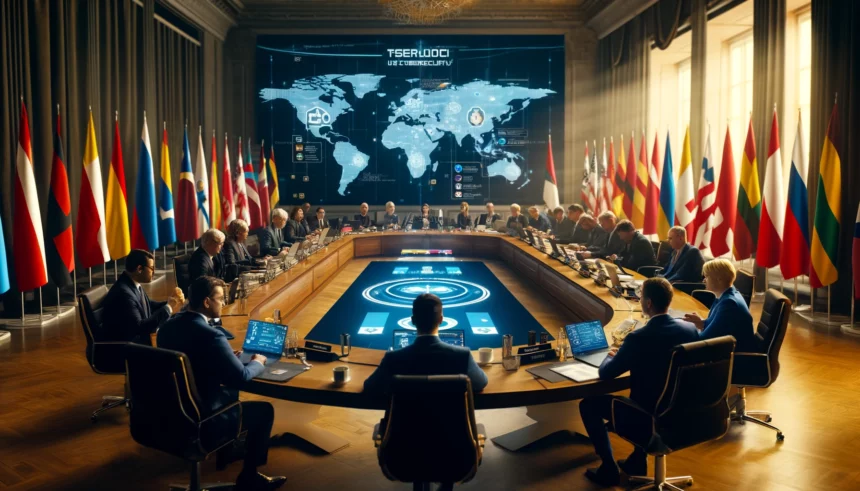In the historical city of Vilnius, leaders and tech giants convened at a significant event titled “Cybersecurity, Resilience, Connectivity: Critical Infrastructure In 3 Seas” on April 10. The focus was clear: collaboration is essential in fortifying the cybersecurity of the Three Seas region, an area embracing much of Central and Eastern Europe.
At this gathering, officials from various governments within the Three Seas initiative discussed pressing issues alongside representatives from tech behemoths like Google, Microsoft, and Amazon. A common theme emerged: the escalating threats of cyberattacks, notably from global actors such as China, Russia, and Iran. Despite the diversity of opinions, there was unanimous agreement on the need for cooperation, not just among nations but also between the public and private sectors.
Liudas Ališauskas, the director of the National Cybersecurity Centre Lithuania, underscored the impossibility of a solitary state achieving impregnable cybersecurity. “One state alone cannot build a fortress,” he remarked, highlighting that the realm of cyberspace represents a new battleground.
The dialogue wasn’t restricted to governmental concerns. The critical infrastructure — sectors as vital as energy, telecommunications, and water — was also a significant point of discussion. The urgency of protecting these sectors has only intensified since the onset of the Russian invasion of Ukraine in early 2022. Simion-Dorin Rusu, from Microsoft, pointed out a startling increase in attacks on critical infrastructure, from 139 incidents in 2020 to a staggering 628 in 2021, with similar numbers in 2022 and expectations of an even higher count for the current year.
Rusu also touched on the rapid development and deployment of AI technologies, with China leading the charge. “There was an avalanche of AI-infused technology with the speed and impact that we have never seen before,” he stated, emphasizing the breathtaking pace of technological evolution.
The consensus among speakers was straightforward: the path forward lies in unity and collective action. However, despite this atmosphere of cooperation, Inga Žukauskienė, director of the Regional Cyber Defence Centre, faced challenges in securing commitments for the expansion of Lithuania’s cybersecurity capabilities during a panel discussion.
This event in Vilnius was a vivid illustration of the shared resolve among the Three Seas states and their partners in the tech industry to confront the growing cyber threats through solidarity and cooperation.
















